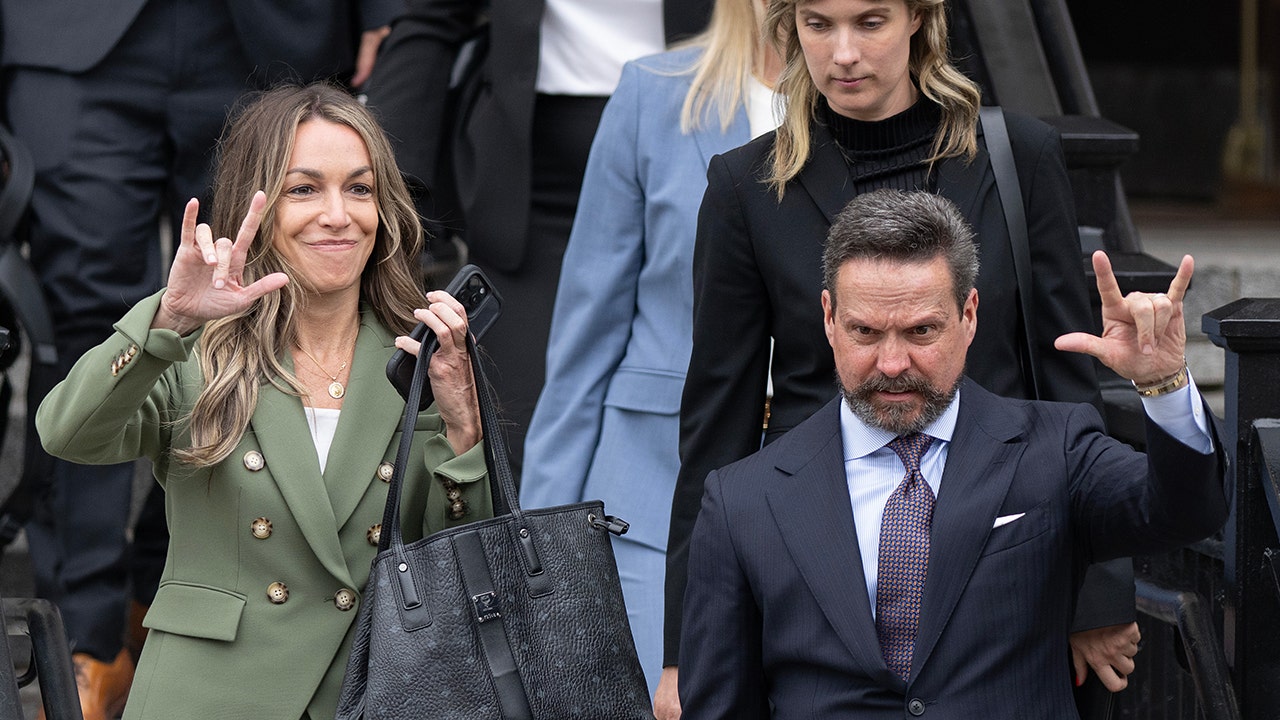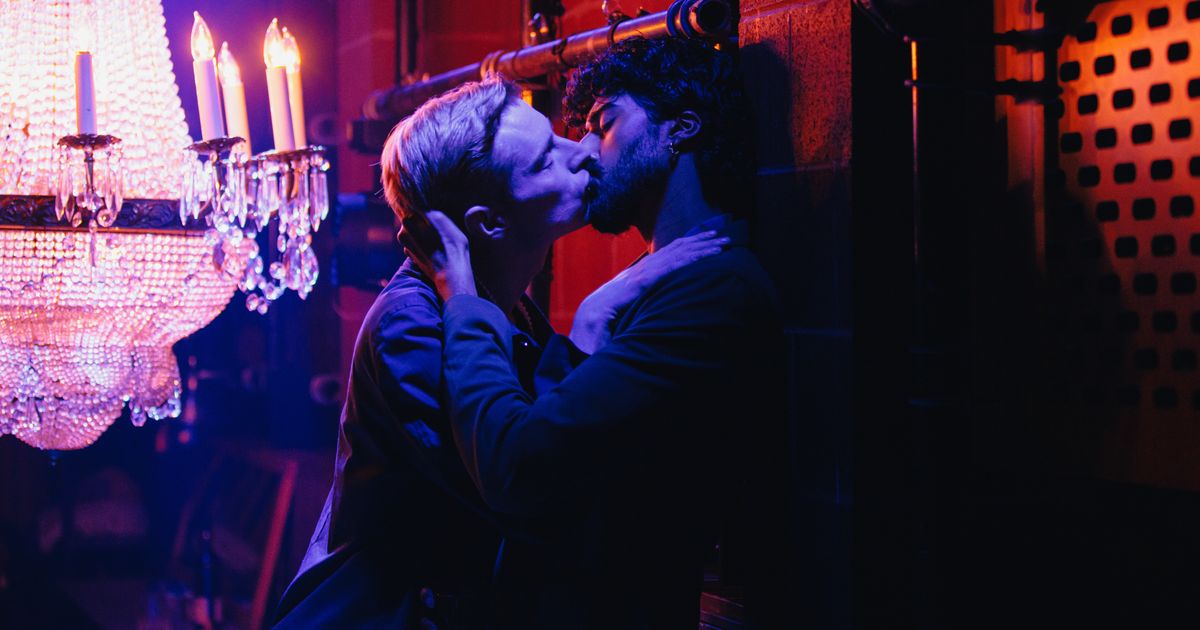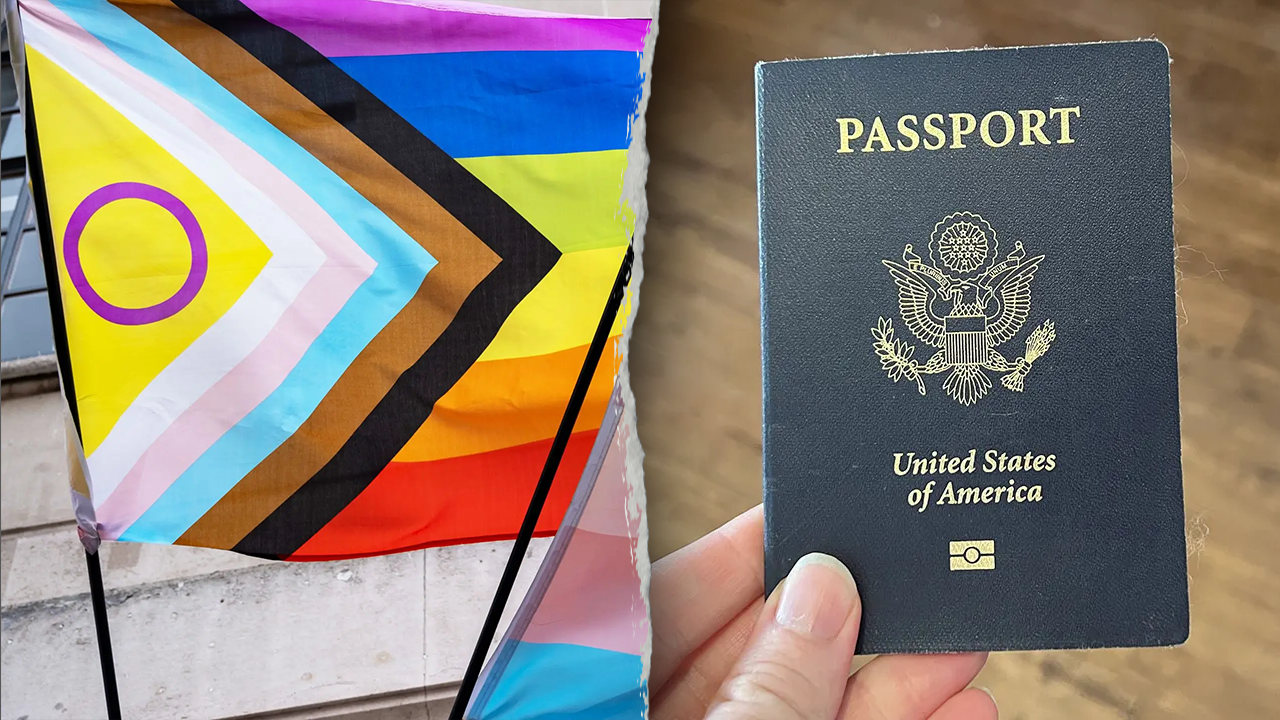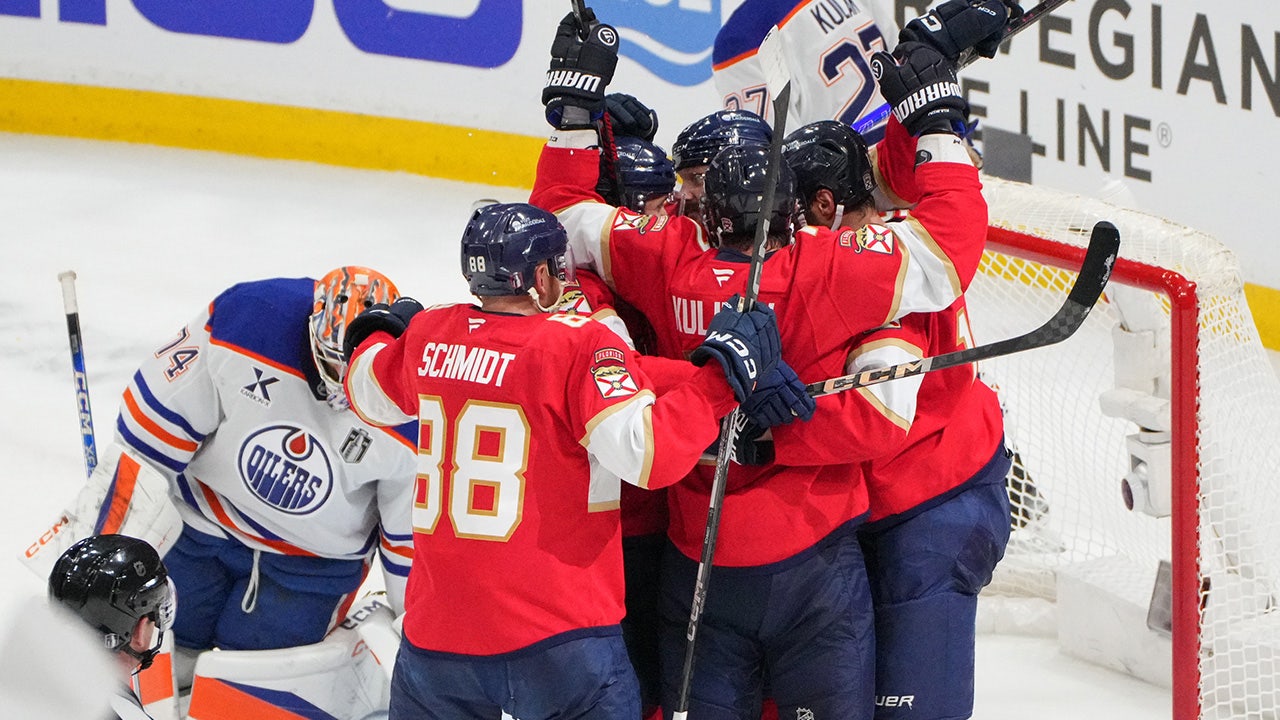John McCrea and Mihir Kumar.
Photo: Marc J. Franklin
The desire to look in a mirror and see oneself adorned with a crown is a powerful thing, an urge that motivates everyone from Macbeth to people who enjoy playing the video game Civilization. But if actually ruling seems like a big ask, and it’s too bloody or too extreme to imagine usurping the king, maybe it’s easier to look for a mirror in the polished surface of the crown itself: What if that perfectly pedigreed inheritor of a great colonial empire were a bit more like you? Is that comfort enough, if the rest of the system stays in place? Are representation and resemblance their own mandate of heaven? Or, as Jordan Tannahill’s Prince Faggot puts it, what would happen if, just a few steps down the line of inheritance, there were a guy who loved being a little bitch in bed?
The jumping-off point for Prince Faggot lies in a photo that dominated a flicker of discourse on the app formerly known as Twitter for a few days in 2017: A three-year-old Prince George, the son of Will and Kate, gazing fondly at a military helicopter on a trip to Hamburg. Tannahill’s first scene has all the fervor and self-righteousness you might expect from social media: A sextet of actors in their street clothes sits on the lip of the stage discussing how, in that photo, the future king looked very, well, you know … gay. One of the actors, Mihir Kumar, leads the charge in a monologue that the program notes is drawn from his own life comparing that photo of George to a similarly fey one of himself as a child (both are projected onto a screen at the center of the stage). He also describes getting into a flame war with a former friend named Kendra who insisted he was sexualizing a child. The rest unspools like the replies under a viral post. Another actor, played by the great K. Todd Freeman, insists it’s weird to say anything determinative about the sexuality of a kid so young, while a gleeful troll, played by David Greenspan, interjects, “Frankly, I think we’ve been doing a terrible job with the grooming. I mean look how many straights there are still.”
Hypothesizing about the sexuality of a young prince is delicate and rich territory for drama, though not necessarily as transgressive as all that throat-clearing makes it out to be. The producers, Soho Rep and Playwrights Horizons (who know how to dot their i’s after producing the non–Fleetwood Mac Stereophonic), note in the play’s program that any resemblance Prince Faggot bears to real events is coincidental, but the idea of a fey gay British prince is by now its own mini-genre, whether in the escapist neoliberalism of Red, White & Royal Blue or the Family Guy–style Instagram-caption humor of a one-season cartoon on Max. Tannahill’s take opens with something like a spec script for a future episode of The Crown: A college-aged Prince George (played by the porcelain John McCrea, whom Montana Levi Blanco has dressed in high-fashion shorts) brings his British Indian Oxford boyfriend, Dev (Kumar, well-groomed and intimidating, like every queer who majors in the history of art), home to meet his family. Initially, Tannahill is quite generous in his portrait of the royal family, with Will (played by Freeman) and Kate (Rachel Crowl) doing their best to be genially supportive of their son’s desires, though they’re only comfortable with his queerness to an extent. A dinner-table fight breaks out over the fact that they let him study ballet (acceptably artistic) but balked at contemporary dance (faggy). It’s a fair point that desexualized cis-white gayness has become assimilated to the point of being acceptable in the highest echelons of power, but I did get hung up on the notion that, given its track record of dull royals, the House of Windsor could produce an intellectual who has an opinion about Pina Bausch.
In those scenes, Tannahill’s writing can be careful to a fault, with George and Dev spouting dialogue that may well be reprinted from a gender-studies thesis or transcribed from an argument occurring in Bushwick right now. (“There are other symbols available to you,” Dev says of George’s interest in joining the army.) Prince Faggot’s humor comes in intermittently, much of it via appearances from Greenspan (working magic with a severe bob when playing the royal press secretary) or in swipes about high-end queer signifiers. (Dev, in the midst of a fight, sputters that George should thank him for bringing him to dinner with Ocean Vuong; George gets his own jab in by pointing out that Dev postures as a Marxist but has a subscription to Equinox.) Even in an invented reality, Tannahill tends to deny himself and his characters the chance to have much fun, as if that might raise more objections to what’s already onstage. But people who might be mad at the thought of gay prince are going to be mad regardless. If we’re depicting posh buggery, I could go for more of the lurid farce of Oscar Wilde, or even the leering imperial horniness of Alan Hollinghurst.
The play comes most alive in action. Shayok Misha Chowdhury, glasslike and precise in his work in Public Obscenities, directs Tannahill’s drama like it takes place in the murky dark room of a club. He’s guided McCrea and Kumar into a gently knowing intimacy, both in unspoken communications they make with each other under George’s parents’ scrutiny and in their richly expressive sex scenes. The audience’s phones are placed in Yondr pouches for good reason. Early on, we see Kumar and McCrea fully nude, as Dev fucks George on that trip to a country estate in a scene that makes it clear that, as Dev puts it postcoitus, the prince is a “chaotic bottom” with a burgeoning interest in poppers. George’s desire to sublimate himself grows as the play progresses: Chowdhury pulls back a curtain in one montage to reveal the prince gagged, blindfolded, and tied up in shibari bondage; during a later drug trip, George fantasizes about being walked like a puppy in a striking tableau of postcolonial sexual humiliation.
That the royal firm would never accept a prince who is a true faggot is a foregone conclusion, and Tannahill’s drama stalls out as it works its way back to that very point, with George’s parents pressuring him away from sexual experimentation and toward a more conventional path. But if the travails of Dev and George become predictable, even with a striking rain scene that Chowdhury stages by quoting Four Weddings and a Funeral, Tannahill and Chowdhury wisely shift the emotional heft of Prince Faggot onto fourth-wall-breaking monologues from its cast that expand and complicate what’s happening inside its plot. Crowl, after that sex scene, reflects on the anger she felt being deprived of a real childhood as a trans girl. Freeman gets a speech about a drama teacher who told him that, as a Black man, he was playing a king wrong in Henry V. Greenspan impishly, and then sweetly, recalls friends who offered to teach him about fisting during the AIDS epidemic. And N’Yomi Allure Stewart, who mostly plays a wisecracking Princess Charlotte (and associate-directed the revised Cats), brings the production home with a story about how her own teenage desire to become a princess was fulfilled not through some fairy-tale romance, but by earning the title in the ballroom community, an alternative royalty that someone like Prince George could never hope to access. That’s a sentiment that E.M. Forster, another stuffy British F-word fond of the “aristocracy of taste,” might well endorse.
Stewart’s speech provides Prince Faggot with a rousing conclusion, but it displaces the catharsis from Tannahill’s characters themselves. I was left wanting to know more, not about George — like many royals, he’s more interesting as a symbol than a person — but Dev, who does and does not stand in for the assumed positions of the playwright, director, and audience. He’s a diligent leftist who’s written about Kara Walker, with a dad who canvases for Labour, and he also refuses to bottom for George because “my ancestors would never forgive me.” And yet, this guy also managed to fall hard enough for an actual prince that he agreed to enter into the public-relations Saw trap that would come with dating him publicly. Dev tells George he wishes he’d renounce the crown, but he also clearly derives sexual frisson from getting to slide his dick into the very arse of empire. Here’s another inversion: In a consensual relationship, the dom may seem in control, but he does give power away to his sub, letting him determine the extent of the punishment, and agreeing, if only implicitly, that something about him is worth conquering. Dev, like Prince Faggot itself, may be more in awe of the throne than he would prefer to admit. What a beautiful thing it could be to seize and stain.
Prince Faggot is at Playwrights Horizons.
See All












